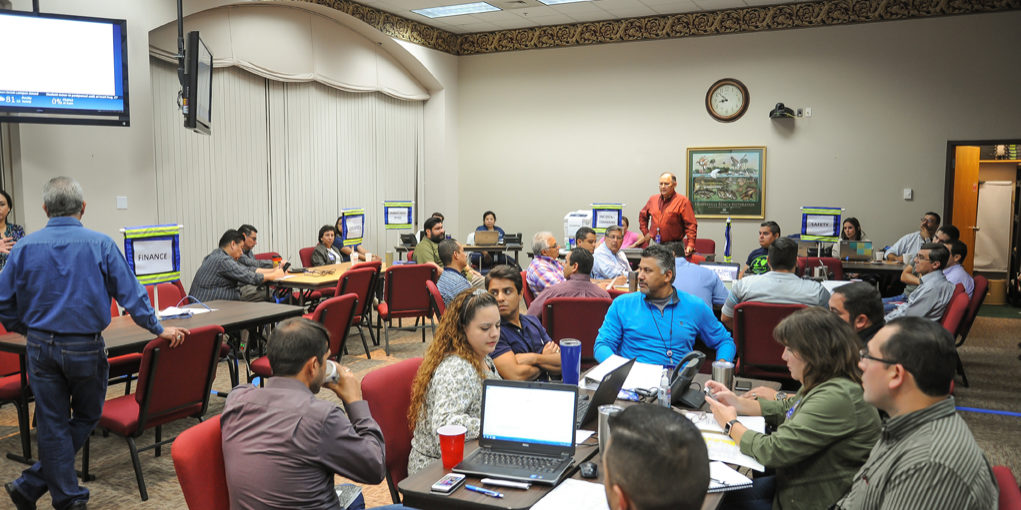Using Incident Command for Business
When BPUB activates its General Emergency Plan, the company responds according to plans established by FEMA which include the Incident Command System (ICS), the standard for emergency management by all public agencies in the United States for both planned and emergency events. This organizes personnel under one leader toward a common task, improving communication and ensuring a more organized response. That may expand or contract based on the magnitude of the incident, a hallmark of ICS. Businesses with organized emergency response teams that interface with public emergency services can benefit from using the ICS. ICS is also well suited for managing disruptions of business operations. Public information and crisis communications are an integral part of the ICS structure.
Benefits of ICS:
- Common terminology
- Modular organization
- Management of objectives
- Chain of command & unity of command
- Unified command
- Resource management
- Integrated communication
- Accountability
While natural disasters or power outages might not be things that your business needs to anticipate, there could be other emergencies, whether it be a tight deadline, loss of resources or personnel, or a major project. In cases like this, you might need to marshal your workforce and redirect their efforts toward one unifying cause.
“We must ensure that as a community we work together to build, sustain and improve our capability to prepare for, protect against, respond to, recover from and mitigate all hazards,” says Eduardo Martinez, BPUB’s senior safety training coordinator.
Plan Your ICS
There are a couple of ways that you can start planning an ICS for your business. Start thinking about scenarios that might require the ICS at your business, and it’s very important to give a careful look at the personnel that you have and how you can divide responsibilities. Remember that in this situation, people don’t have to be doing their same daily tasks. Use them, however, would be the greatest benefit to you for the emergency.
Try to think ahead of what some of your needs might be. Will there be overnight arrangements? You might need to think ahead to food and other needs. Do you want to track all expenses during the incident? Set up ahead of time a finance code that can be used. Make sure that all necessary equipment has been thought about before the emergency. You don’t want to be running around trying to make arrangements during one.
Incident Commander
Remember that one person should be assigned as the Incident Commander. While that role might traditionally be filled by a company president or manager, it doesn’t necessarily have to be, but whoever is in this role is the main authority. The incident commander must take charge of the situation and coordinate all activities. Communications start here and filter their way down, and all requests must be approved by the incident commander.
Business Continuity
Since you’re already thinking ahead of what your needs will be during the emergency, you also need to consider what will need to be done during the emergency and once that emergency has passed. If you are forced to suspend regular business operations, come up with a plan with what needs to be done to restore operations once the incident is complete. You might even be able to come up with a personnel situation that enables business continuity through the event. A lot might depend on the nature of your business or situation.
Read more about ICS from the Federal Emergency Management Agency (FEMA): https://training.fema.gov/emiweb/is/icsresource/assets/reviewmaterials.pdf
Read more about business continuity:

